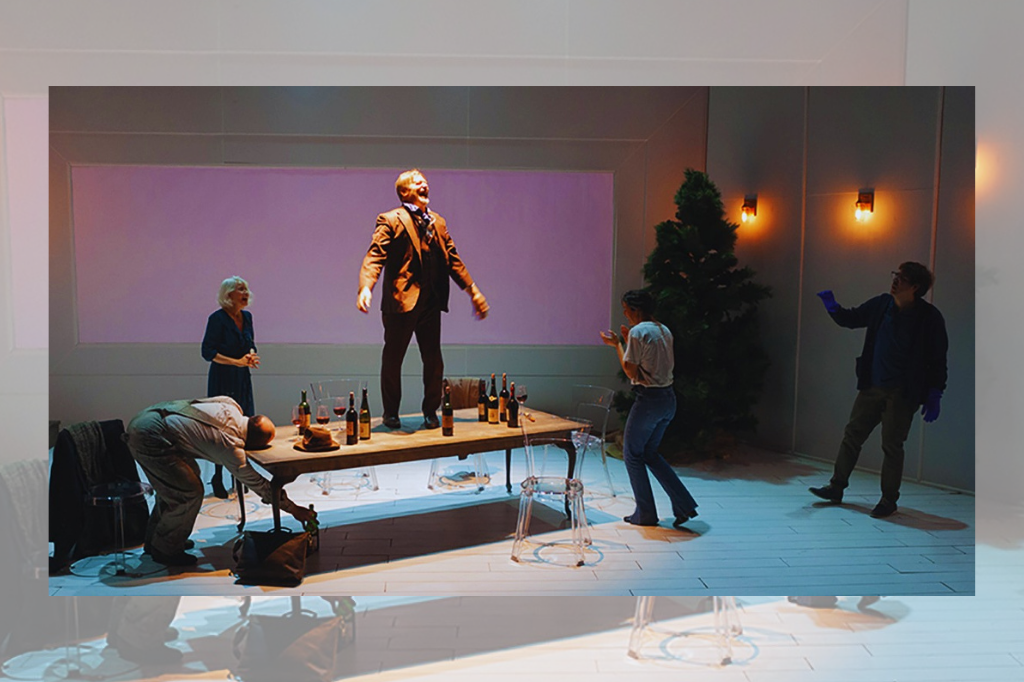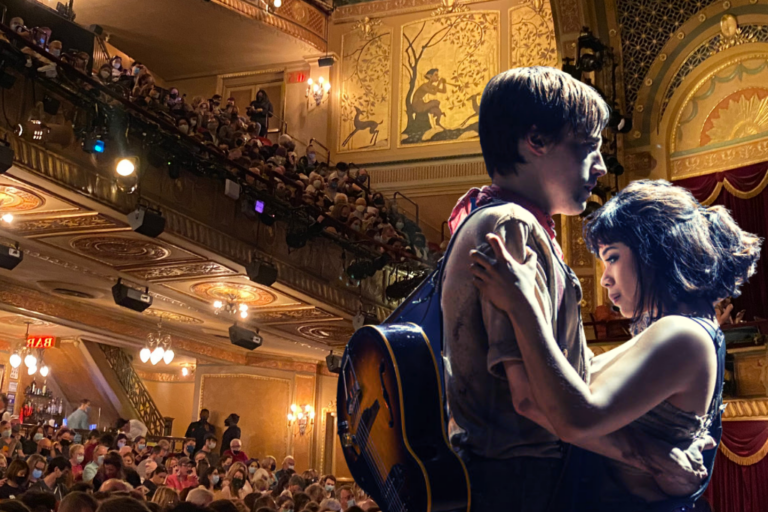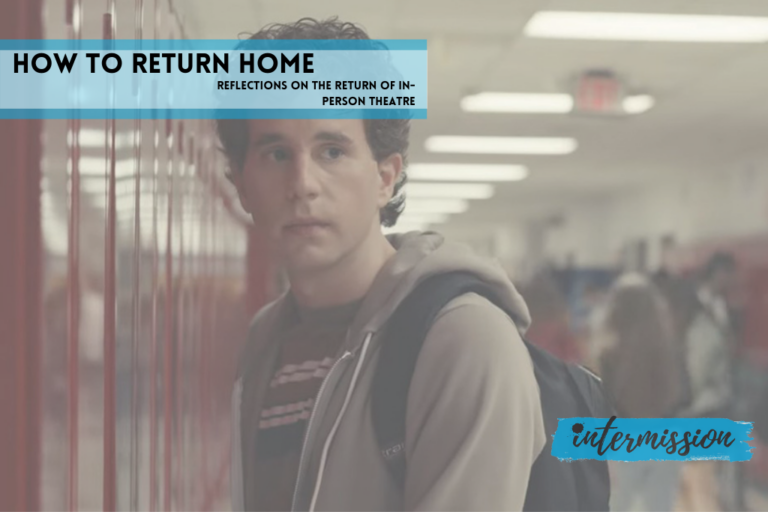Cette fois, en français: Returning Home to Solstice d’hiver
As in-person Canadian theatre slowly re-opens, Intermission’s Editors will be sharing personal reflections on the realities of being back in the theatre. These are not criticisms or reviews. These are not blog posts. They are history.
A crisp Sunday killed in the aisles of Dollarama. An ID dropped in the Yonge/Eglinton muck. Pinched rain boots. Slush.
Conquer the above. Appear at 26 Berkeley Street. First live performance of 2022. Nerves. Glittery stomach, eager and poised.
Incorrect COVID-19 vaccine certificate. Phone calls to provincial hotlines who don’t answer on Sundays. No QR code in sight. No entry to theatre.
Cry. Go home. Call mother and boyfriend and co-editor.
Cry.
My second attempt at seeing Solstice d’hiver at Théâtre français de Toronto goes much better — after three calls to different Ontario public health agencies, I finally have the QR code required to enter Canadian Stage. It’s now Wednesday, and I’m allowed to see the show.
I’ve been excited about it for months.
While still attending the University of Ottawa, in a theatre department led by TfT powerhouse Joël Beddows, I wrote an undergraduate term paper on this play, this strange and gorgeous offering from German playwright Roland Schimmelpfennig. I found myself enchanted by the play’s stage directions; the fallible passing of time; the characters encased in mystery, deceit, and sorrow. Solstice d’hiver (or Winter Solstice, when first I read it in 2020) lingered with me long after I submitted my term paper and forwarded it to Beddows upon request — I doubted I’d see the play staged in Canada.
How lucky I was to be wrong.
In my first trip to Canadian Stage since moving to Toronto (a first which feels long overdue as I settle into my seat), I get to witness the events of Solstice d’hiver unfold in real time: it’s Christmas Eve, and Albert and Bettina are getting ready for Christmas. Their young daughter abounds with impish chatter, roused by the Yuletide spirit and her own upcoming birthday — she’s represented onstage by only an empty chair. A knock at the door brings stranger Rudolph, who met Bettina’s mother on the train earlier in the day. Red wine abounds; aloof conversations on art and God bubble away; extramarital affairs scorch just beneath the surface of the festivities.
Bettina and Albert’s home seems straight from an IKEA catalogue, all clean edges and abstract paintings — the lighting, in this production, is particularly stunning, deftly oscillating between warmth and harshness as tensions rise to a frightening boil.
It’s the first time since moving to Toronto I’ve thought in French for more than a few moments — my life in Ottawa was a bilingual one, and that’s something I’ve found myself missing since August, the mercis to public transit operators and NAC ushers. Solstice d’hiver scratches the itch for French language as a new Torontonian, and provides surtitles as a useful safety net. I’m surprised how often I find myself glancing towards them — Schimmelpfennig is certainly a different beast in translation, and I’m grateful for the English captions as needed. Tu me manques, théâtre en français, I find myself thinking, revelling in French performance a short subway trip away, and not relegated to Ottawa or Quebec.
Solstice d’hiver, my first live theatre-going experience of 2022, truly does feel like a homecoming; a gasp of air; a pause from pandemic and asinine convoy. The performance feels personal and unfortunately prescient, with themes of anti-Semitism and nihilism gnawing away at a superficially cheerful Christmas Eve. The immediacy of live performance is sudden and wonderful, an illicit treat after the on-and-off lockdowns of the past two years.
In a dark room, a story unfolds, sharp and beautiful.
In a dark room, an acquaintance from my undergraduate life directs a powerhouse play with chilling resonance against Canadian current events: not enough people are here, not enough people are talking about it, not enough people will see it themselves.
In a dark room, we savour strong performances; imaginative projections; playwriting unlike much of the Canadian canon due to its postdramatic tinge.
In a dark room, the audience laughs together, and shifts its weight in uncomfortable chairs, and unwraps candies, and envelopes itself in scarves and coats.
In a dark room, we come back to the theatre — once again, we return home.















Comments